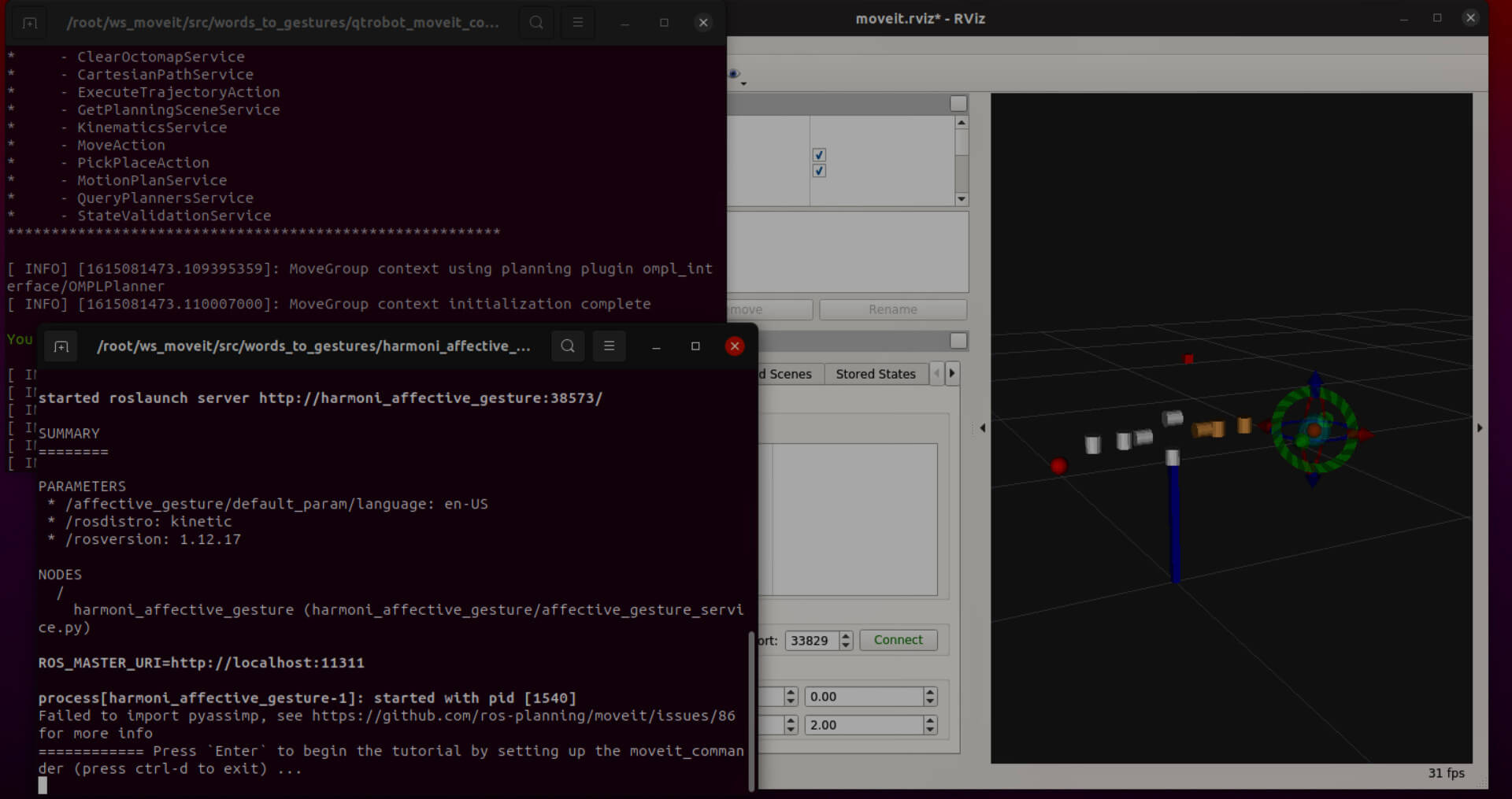There are a lot of things I didn’t know a year ago: That through multi-threading or parallel computing I can have multiple functions running seemingly simultaneously on my CPU. That TikTok would become even more popular over the course of the year. That I would be going to college online longer than I had been in person. Did I know a year ago how to create and utilize a self-composed dictionary of gesture image schemas to produce affective gesturing in robots through the MoveIt Framework of Robot Operating Systems and Natural Language Processing? Heck no. But here I am a year later in my research, able to do more than just follow along with my PhD student advisor and read literature.
Though knowing what to do in research and being an active part of it all seems like a given with the research process, I have to admit that in the beginning I had no idea what I was doing. And that’s the story with a lot of undergrads when they first start on a research project. I mean, what freshman, sophomore, junior, and even senior knows the ins and outs of an area of study that a PhD student or professor has spent ~years and years~ intently studying and learning the ins-and-outs of? (If that undergrad exists, please let me know so I can have coffee with them and learn how to become a certifiable genius). So those first couple months I was winging it and never thought I’d get to the level of understanding and proficiency that I have at this point now.
Now this isn’t a blog to summarize all the details of the countless lines of python code I’ve written in the past year or the intricacies of configuring robotic joints simultaneously (If that’s what the people want though, I can write about that another time when my brain isn’t fried from midterms). Instead I want to focus more holistically on what I have learned from this experience of joining an intricate project so early on (big shoutout to Viterbi undergraduate research initiatives, fellowships, and overall support to participate in research!)
You Don’t Have to Know Everything
It is perfectly normal (and a good thing) to not know things! As achieving engineering students, there’s oftentimes a false pressure we put on ourselves to know everything or at least not to appear as though we don’t know what we’re doing. That’s an impossible standard to hold yourself too and more importantly, it keeps you from taking in all you can from an experience. By asking for and accepting the help and guidance of my PhD student mentor on each occasion I needed it, I was able to dive deeper into the topics we were studying and truly understand them at a fundamental level. Instead of trying to push along on shaky foundations in these complex areas, choosing to ask every question I had and following the suggestions of my advisor to learn more gave me much more confidence.
Have Faith In Your Abilities and Growth
Through all this I also learned not to limit my options based on my current assessment of my abilities. What I mean by this is I was apprehensive to truly put myself into a situation like research where I had no experience or background in yet, and doubted my capabilities in being able to keep up or contribute. It’s the age-old nerves of being pushed outside your comfort zone and any cheesy coming-of-age movie will tell you that you’ve just got to take that step outside your bubble and push yourself into unknowns. I can’t tell you how many upperclassmen I’ve voiced my worries or concerns to who say they’ve had the same exact ones! We’re all trying to figure things out and research has been a really transformative way for me to do so for myself!




